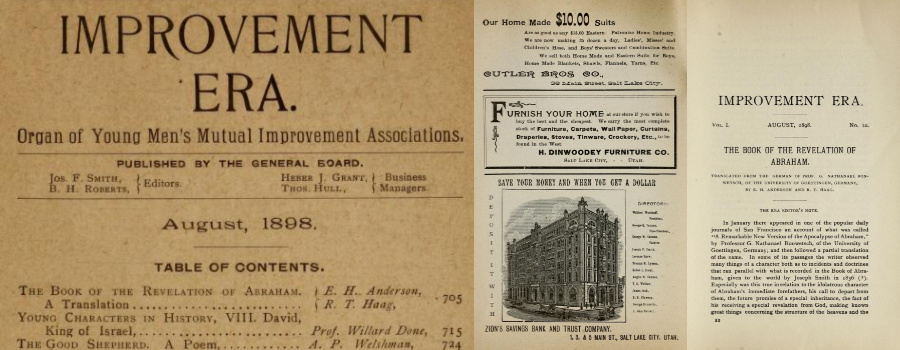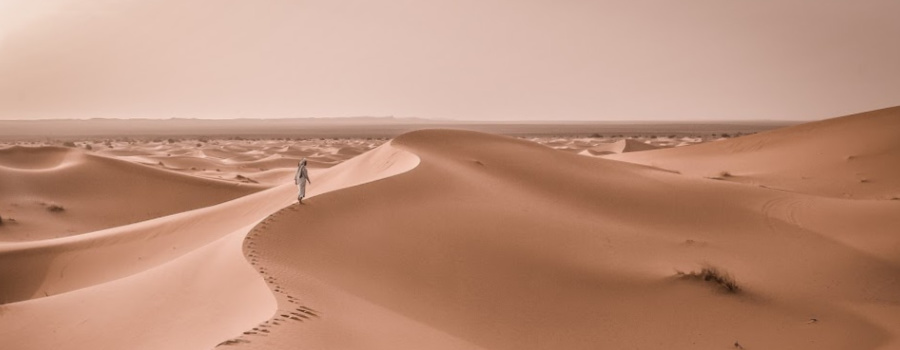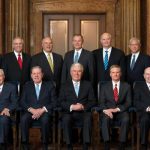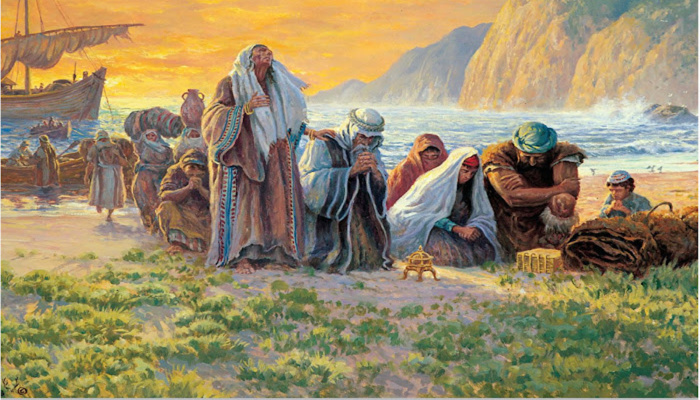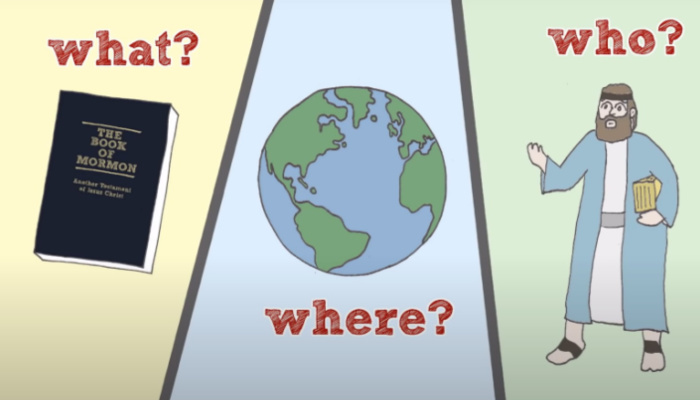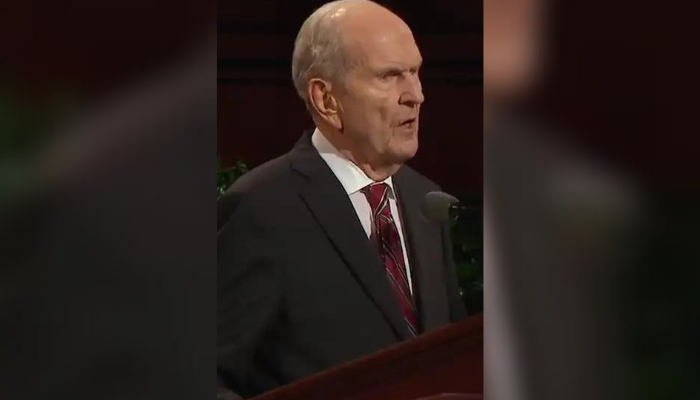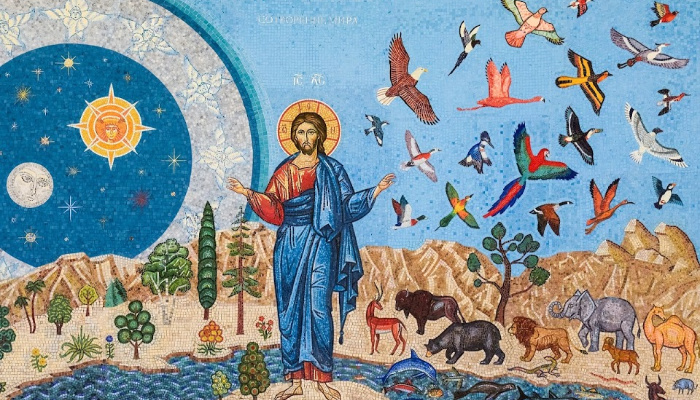
5 Testimony-Affirming Similarities Between The Book of Abraham and The Apocalypse of Abraham
Joseph Smith published the first bit of his translation of The Book of Abraham in the Church’s newspaper, Times and Seasons, in 1842. Joseph died in 1844. More than fifty years later, Latter-day Saints got their hands on the first English translation of a document known as The Apocalypse of Abraham. The Church published it (in two installments) in their magazine, Improvement Era, in 1898.
Researchers believe The Apocalypse of Abraham was probably first written in Hebrew or Aramaic, but during Joseph Smith’s time I cannot find any record to suggest that the world at large knew of the text’s existence. Decades after Joseph’s death, Professor G. Nathanael Bonswetsch of the University of Goettingen (Germany) helped to bring the only (and oldest) known manuscript of The Apocalypse of Abraham into the world spotlight after he found the manuscript at the University of Moscow. It was written in Old Slavonic (a precursor to Russian).
The chances that Joseph Smith knew of the existence of The Apocalypse of Abraham half a world away (and half a century away from an English translation), are virtually nonexistent. Yet, there are incredible similarities between the two texts. Here are just 5 of them:
NOTE: For the sake of brevity, I will refer to The Book of Abraham as “BA,” and The Apocalypse of Abraham as “AA.”
1. Re-locating because of an idolatrous father
As you read the following excerpts, keep in mind that there is only one single verse in the entire Bible that even suggests Abraham’s father was idolatrous (Joshua 24:2). Nonetheless, in BA chapter one we read a lot more on the subject:
I, Abraham, saw that it was needful for me to obtain another place of residence…
My fathers, having turned from their righteousness, and from the holy commandments which the Lord their God had given unto them, unto the worshiping of the gods of the heathen, utterly refused to hearken to my voice; For their hearts were set to do evil…
Therefore they turned their hearts to the sacrifice of the heathen in offering up their children unto these dumb idols, and hearkened not unto my voice…
Likewise, AA begins by telling the story of Abraham’s relationship with his idolatrous father, whose profession was to literally make idols. It was Abraham’s job to sell his father’s idols. After accidentally breaking a few of them, but selling the rest, this happens:
As I was still walking on the road, my heart was disturbed and my mind distracted. I said in my heart, ‘What is the inequality of activity which my father is doing? Is it not he rather who is god for his gods, because they come into being from his sculpting, his planning, and his skill? They ought to honor my father because they are his work. What is this food of my father in his works?…’
And thinking thus, I came to my father’s house. And I watered the ass and gave him hay. And I took out the silver and placed it in the hand of my father Terah. And when he saw it, he was glad, and he said, ‘You are blessed. Abraham, by the god of my gods, since you have brought me the price for the gods, so that my labor was not (in) vain.’ And answering I said to him, ‘Listen, father Terah! The gods are blessing in you, because you are a god for them, because you made them, for their blessing is their perdition and their power is vain. They did not help themselves; how then can they help you or bless me? I was good for you in this transaction, for through my good sense I brought you the silver for the smashed (gods).’ And when he heard my speech he became furiously angry with me, because I had spoken harsh words against his gods.
Later, Abraham resolves to discover the one true, all-powerful God. Then, this happens:
And it ca[m]e to pass as I was thinking things like these with regard to my father Terah in the court of my house, the voice of the Mighty One came down from the heavens in a stream of fire, saying and calling, ‘Abraham, Abraham!’ And I said, ‘Here I am.’ And he said, ‘You are searching of the God of gods, the Creator, in the understanding of your heart. I am he. Go out from Terah, your father, and go out of the house, that you too may not be slain in the sins of your father’s house.’
2. Interest in governing bodies
Let’s back up a bit. Before Jehovah reveals himself to Abraham in AA, Abraham goes through a serious period of thought and discovery. His father’s stone gods were easily breakable and could be trampled under foot by a donkey. Hardly “all-powerful.” Later, Abraham finds that his father’s wooden gods were easily burnable. Surely if fire has control over wooden gods, the fire is the more powerful of the two, he reasons.
And this sparks a chain of logical thinking for Abraham. Fire holds dominion over wood. But the waters hold dominion over fire…
But I will not call them god either, for the waters subside under the earth and are subject to it. But I will not call it a goddess either, for it is dried by the sun (and) subordinated to man for his work.
More venerable among the gods, I say, is the sun, for with its rays it illuminates the whole universe and the various airs. Nor will I place among the gods the one who obscures his course by means of the moon and the clouds. Nor again shall I call the moon or the stars gods, because they too at times during the night dim their light.
Listen, Terah my father, I shall seek before you the God who created all the gods supposed by us (to exist). For who is it, or which one is it who made the heavens crimson and the sun golden, who has given light to the moon and the stars with it, who has dried the earth in the midst of the many waters, who set you yourself among the things and who has sought me out in the perplexity of my thoughts?
A few verses later in AA, the “Mighty One” finally reveals himself to Abraham. In the third chapter of BA Jehovah also reveals himself to Abraham and seems to continue Abraham’s train of thought concerning the governing bodies of the heavens. God reveals that He has power over all of them.
And I saw the stars, that they were very great, and that one of them was nearest unto the throne of God; and there were many great ones which were near unto it;
And the Lord said unto me: These are the governing ones; and the name of the great one is Kolob, because it is near unto me, for I am the Lord thy God: I have set this one to govern all those which belong to the same order as that upon which thou standest…
If two things exist, and there be one above the other, there shall be greater things above them; therefore Kolob is the greatest of all the Kokaubeam (stars) that thou hast seen, because it is nearest unto me.
Now, if there be two things, one above the other, and the moon be above the earth, then it may be that a planet or a star may exist above it; and there is nothing that the Lord thy God shall take in his heart to do but what he will do it.
Howbeit that he made the greater star; as, also, if there be two spirits, and one shall be more intelligent than the other, yet these two spirits, notwithstanding one is more intelligent than the other, have no beginning; they existed before, they shall have no end, they shall exist after, for they are gnolaum, or eternal.
And the Lord said unto me: These two facts do exist, that there are two spirits, one being more intelligent than the other; there shall be another more intelligent than they; I am the Lord thy God, I am more intelligent than they all…
I dwell in the midst of them all; I now, therefore, have come down unto thee to declare unto thee the works which my hands have made, wherein my wisdom excelleth them all, for I rule in the heavens above, and in the earth beneath, in all wisdom and prudence, over all the intelligences thine eyes have seen from the beginning…
And thus the Abraham of BA (and AA) discovers the one true God.
3. The Pre-existence
Soon after Abraham learns about the governing bodies of the universe in BA, he learns about the pre-mortal life.
Now the Lord had shown unto me, Abraham, the intelligences that were organized before the world was; and among all these there were many of the noble and great ones;
And God saw these souls that they were good, and he stood in the midst of them, and he said: These I will make my rulers; for he stood among those that were spirits, and he saw that they were good; and he said unto me: Abraham, thou art one of them; thou wast chosen before thou wast born.
Something similar also occurs in AA (we’ll see the following verse again later on):
And while he was yet speaking, the expanses opened, and there below me were the heavens, and I saw upon the seventh firmament upon which I stood a fire widely extended, and the light which is the treasury of life, and the dew with which God will awaken the dead, and the spirits of the departed righteous, and the spirits of those souls who have yet to be born, and judgment and righteousness, peace and blessing, and an innumerable company of angels…
Another segment of Abraham’s vision in AA soon follows:
And I saw there a great multitude, men and women and children, half of them on the right side of the vision, and half of them on the left side of the vision.
And I said, ‘0 Eternal, Mighty One! What is this vision and picture of the creatures?’ And He said to me, ‘This is my will for those who exist in the divine world-counsel, for thus it seemed well-pleasing in my sight, and so afterwards I gave commandment to them through my word. And so it came to pass that whatever I had determined to be, was already planned beforehand in this picture-vision before you, and it has stood before me before it was created, as you have seen.’
And I said, ‘0 Lord, Mighty and Eternal! Who are the people in this picture on this side and that?’ And He said to me, ‘Those who are on the left side are all those, born before your day and afterwards, some destined for judgment and restoration, and others for vengeance and cutting off at the end of the age. But those on the right side of the picture, they are the people who have been set apart for me, and whom I have ordained to be born of your line and called my people…’
4. Vision of God’s creations
In BA we read more about Abraham’s experience with God:
Thus I, Abraham, talked with the Lord, face to face, as one man talketh with another; and he told me of the works which his hands had made;
And he said unto me: My son, my son (and his hand was stretched out), behold I will show you all these. And he put his hand upon mine eyes, and I saw those things which his hands had made, which were many; and they multiplied before mine eyes, and I could not see the end thereof.
Surely this vision was not opened to Abraham as a way for God to gloat over his power, but rather to show Abraham that He, God, is indeed all-powerful. Something similar happens in AA (in more detail) as God shows Abraham His creations and challenges Abraham to find another being with comparable power:
And a voice came to me out of the midst of the fire, saying, “Abraham! Abraham!” and I answered saying ‘Here am I!’ And he said, ‘Consider the expanses which are under the firmament on which you are now placed and see how on no single expanse is there any other than the One whom you have sought, even the One who loves you!’
And while he was yet speaking, the expanses opened, and there below me were the heavens, and I saw upon the seventh firmament upon which I stood a fire widely extended, and the light which is the treasury of life, and the dew with which God will awaken the dead, and the spirits of the departed righteous, and the spirits of those souls who have yet to be born, and judgment and righteousness, peace and blessing, and an innumerable company of angels, and the Living Ones, and the Power of the Invisible Glory that sat above the Living Ones.
And I looked downwards from the mountain on which I stood to the sixth firmament, and there I saw a multitude of angels of pure spirit, without bodies, whose duty was to carry out the commands of the fiery angels who were upon the seventh firmament, as I was standing suspended over them. And behold, upon this sixth firmament there were no other powers of any form, save only the angels of pure spirit.
And He commanded that the sixth firmament should be removed from my sight, and I saw there on the fifth firmament the powers of the stars which carry out the commands laid upon them, and the elements of the earth obeyed them.
5. Vision of the Garden of Eden and Adam/Eve
You’re probably very familiar with the story of Adam and Eve as described in BA chapter 5:
And the Gods planted a garden, eastward in Eden, and there they put the man, whose spirit they had put into the body which they had formed.
And out of the ground made the Gods to grow every tree that is pleasant to the sight and good for food; the tree of life, also, in the midst of the garden, and the tree of knowledge of good and evil.
There was a river running out of Eden, to water the garden, and from thence it was parted and became into four heads. And the Gods took the man and put him in the Garden of Eden, to dress it and to keep it. And the Gods commanded the man, saying: Of every tree of the garden thou mayest freely eat…
And the Gods caused a deep sleep to fall upon Adam; and he slept, and they took one of his ribs, and closed up the flesh in the stead thereof; And of the rib which the Gods had taken from man, formed they a woman, and brought her unto the man.
It should be no surprise that the story of Adam and Eve in AA is similar. What is worth noting is the simple fact that both accounts contain the story at all:
And I saw there the garden of Eden and its fruits, and the source and the river flowing from it, and its trees and their flowering, making fruits, and I saw men doing justice in it, their food and their rest…
And I looked at the picture, and my eyes ran to the side of the garden of Eden. And I saw there a man … with a woman who was also equal to the man in aspect and size. And they were standing under a tree of Eden, and the fruit of the tree was like the appearance of a bunch of grapes of the vine.
And behind the tree was standing (something) like a dragon in form, but having hands and feet like a man’s, on his back six wings on the right and six on the left. And he was holding the grapes of the tree and feeding them to the two I saw… And I said, ‘Who are these two … or who is this between them, and what is the fruit which they are eating, Mighty One, Eternal?’ And he said. ‘This is the world of men, this is Adam and this is their thought on earth, this is Eve. And he who is between them is the impiety of their behavior unto perdition, Azazel himself.’
The BA account does not include the Fall of Adam and Eve, but it’s worth noting that there is strong evidence to suggest that Joseph Smith was never able to publish the entire Book of Abraham before his death. There may even have been portions he had yet to translate. What we have (five chapters) ends with the creation of Eve and the naming of all living creatures. That said, Oliver Cowdery, William West, and William I. Appleby all said that the Egyptian papyri contained information about the Fall.
There’s something going on here
The similarities between The Book of Abraham and The Apocalypse of Abraham are simply incredible. The idea that Joseph Smith could have possibly invented this story (especially with its extra-biblical details) all on his own, and then have it match up so incredibly with a medieval transcript of an ancient document more than fifty years later, is hard to believe. Critics can say what they want about the authenticity of the book of Abraham, but The Apocalypse of Abraham is grabbing each of us by the lapels and whispering very sternly, “There’s something going on here.” We’d do well to pay attention.
Further reading and sources:
The Book of Abraham in Latter-day Saint scripture.
Two translations of the Apocalypse of Abraham from pseudepigrapha.com. Quotations from AA in this article come from these translations.
An additional translation of the Apocalypse of Abraham by The Society For Promoting Christian Knowledge
The Apocalypse of Abraham as it appeared in the 1898 Improvement Era.
More information on the Apocalypse of Abraham.


